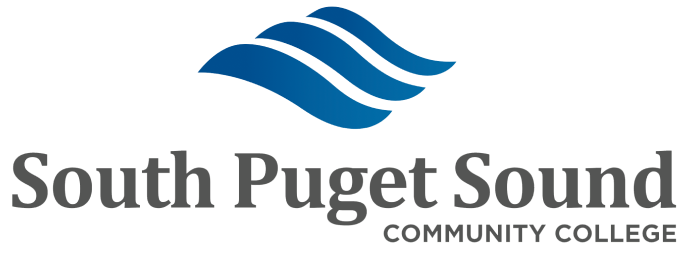To ensure quality distance learning for student success.
South Puget Sound Community College (SPSCC) adopts the following policies regarding web-based education:
1. SPSCC will offer Online Asynchronous, Online Scheduled, Hybrid, and Individualized Instruction courses in addition to In-Person classes.
2. SPSCC and faculty teaching Online Asynchronous, Online Scheduled, or Hybrid classes will comply with all federal guidelines for regular and substantive interaction in distance learning courses and programs.
3. Students should expect that all courses at SPSCC will use an online Learning Management System (LMS) to deliver some course content, and be prepared with adequate internet and technological resources to access such content.
4. For each class, including In-Person classes, at SPSCC, faculty will, at a minimum, use the college-designated LMS to:
a. Post the syllabus
b. Post and maintain grades
c. Perform college assessment activities
5. SPSCC will provide regular ongoing professional development opportunities to enhance distance instruction.
6. SPSCC complies with all federal guidelines for identity verification in distance learning courses and programs.
Course modalities:
1. In-Person: Face-to-face classes with scheduled meeting times which does not require the use of web-based tools. Classes meet at scheduled times and locations.
2. Online Asynchronous: Classes in which all required instruction occurs online asynchronously (without a set time to attend but within a specified time frame) using web-based tools. There are no required real-time (synchronous) class meetings; however, the instructor may choose to offer optional hours and other activities where attendance is not required. Remote proctored exams are an allowable activity for this classification.
3. Online Scheduled: Online classes where instruction takes place synchronously (virtual meetings held at specific days and times noted in the class schedule) using internet/web-based tools. The class may include activities held asynchronously (without a set time to attend). Remote proctored exams are an allowable activity for this instruction mode.
4. Hybrid: Classes that displaces some, but not all face-to-face instruction time with web-based tools. On-site or remotely-proctored exams are allowed for this classification.
5. Individualized Instruction: One-to-one instruction in which a student meets individually with an instructor according to a mutually agreed upon schedule and plan. This instruction mode may include internships, personalized tutoring, or specialized content classes where students collaborate with faculty or staff to develop individualized learning agreements and/or learning outcomes. May also include practicums, co-ops, or service-learning activities.
Regular and Substantive Interaction: The Department of Education defines “regular and substantive interaction” as “engaging students in teaching, learning and assessment, that is consistent with the course content under discussion, and includes at least two of the following every week:
• Attending a synchronous class, lecture, recitation, or field or laboratory activity, physically or online, where there is an opportunity for interaction between the instructor and students;
• Submitting an academic assignment;
• Taking an assessment or an exam;
• Participating in an interactive tutorial, webinar, or other interactive computer-assisted instruction;
• Participating in a study group, group project, or an online discussion that is assigned by the institution;
• Interacting with an instructor about academic matters; and
• Required discussion forum activity.
DEFINITIONS
Distance Learning: Classes offered in Online Asynchronous, Online Scheduled, and Hybrid modalities.
PROCEDURE
Students should be informed of item 3 in the College Catalog.
